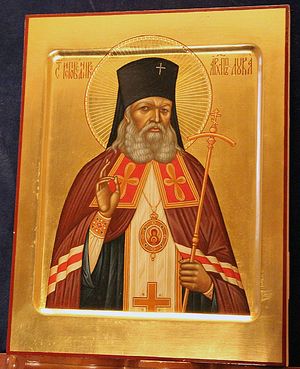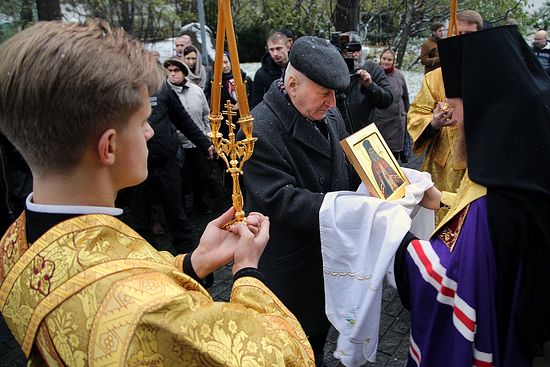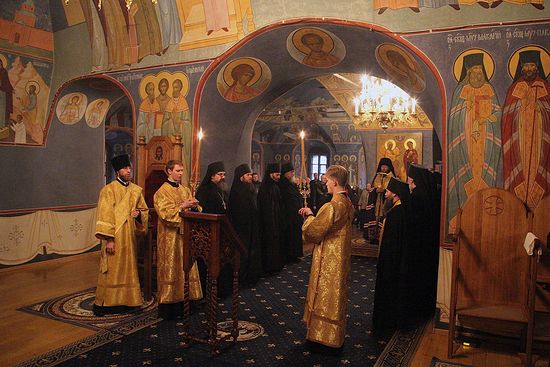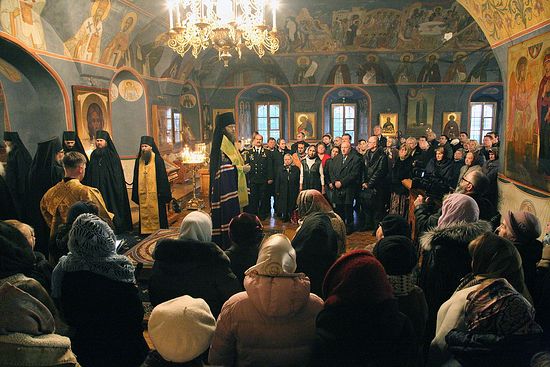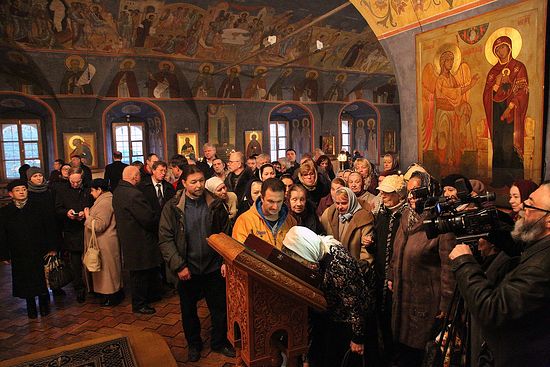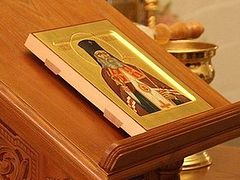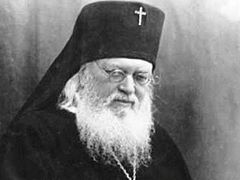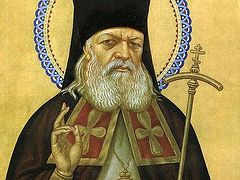Moscow, November 1, 2017
An icon of Holy Hierarch and Confessor Luke (Voino-Yasenetsky) the Physician of Simferopol, which had orbited the globe around 700 times aboard the International Space Station has been returned to Moscow’s Novospassky Monastery. The icon was greeted by deputy abbot His Grace Bishop Sava of Voskresensk along with the brethren and parishioners, reports the monastery website.
The icon had previously been blessed on March 11 in the monastery’s Church of St. Romanos the Melodist, in the tomb of the Romanov boyars, by Bishop Sava, after which it was sent to the Russian Federal Space Agency and then to the space station from April till July 2017.
The icon was brought to the monastery on Friday before the start of the evening services by Yuri Serov, the chairman of the board of the Fraternity of Orthodox Leaders of Culture, Science and Education, which had initiated the sending of the image of St. Luke to the space station.
The memorable event was attended by public officials, astronauts, and teachers and students of various Moscow schools. Attendees were also treated to a tour of the monastery.
Following the ceremonial greeting, the icon was carried into the Holy Protection Church, where Bp. Sava served a moleben before it. Following the service, addressing those gathered, His Grace noted that the icon of St. Luke will remain in one of the churches of the monastery for the daily veneration of the faithful.
Noting the spiritual meaning of the event, Bp. Sava said that in orbiting Earth, the icon thus blessed all peoples of the world, and that the bringing of the icon to the monastery inspires believers to pray.
“Today we have solemnly greeted this icon and we will fervently send up prayers and especially venerate the Holy Hierarch and Confessor Luke, not just today, but always,” the hierarch stated.
This year marks the 140th anniversary of St. Luke’s birth on May 9, 2017. St. Luke was a beloved bishop and physician who treated innumerable people, many of whom are still alive today. In 1946 he was awarded a first-degree Stalin Prize, but was later subject to repressions, being exiled for eleven years. He was rehabilitated in April 2000, and later that same year was canonized by the Russian Orthodox Church in the assembly of Russian New Martyrs and Confessors.
Today, St. Luke is widely venerated throughout the Orthodox world, including Russia, Ukraine, Greece, and America and beyond.

